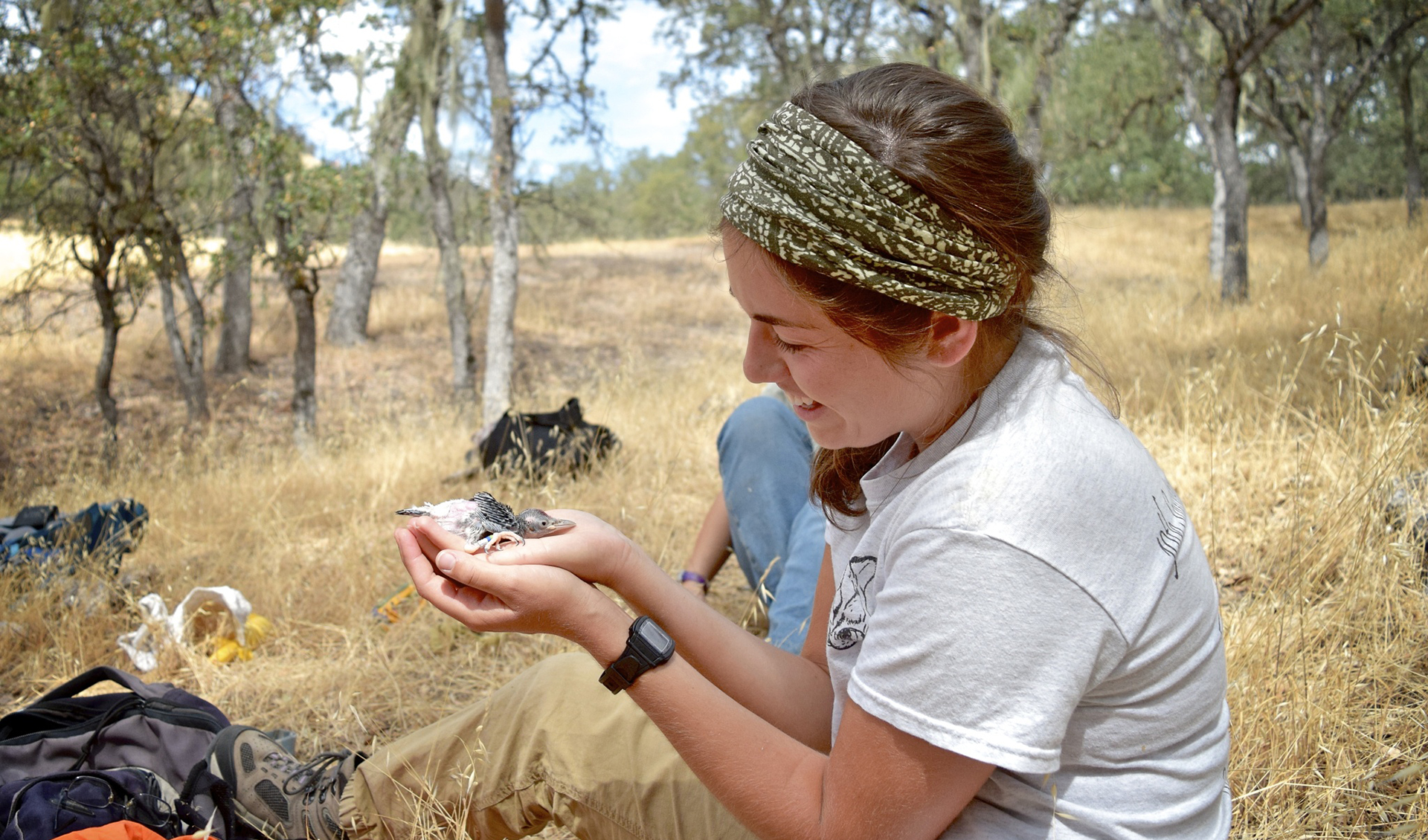Wildlife and Fisheries Resources

Program Description
The Master of Wildlife and Fisheries Resources degree (non-thesis) has a new online delivery option for students with experience in natural resources who wish to enhance their professional degree skills. Students potentially include Federal and State Agency wildlife and fisheries employees, educators who wish to increase their knowledge about wildlife and fisheries biology, private industry professionals, and individuals with a variety of other natural resource backgrounds. We also accept a limited number of students who come from out of the natural resources field or who are looking to make a career change. Students who do not have previous experience in natural resources may need to take coursework to strengthen their chance of success in the program prior to applying. The program is in a fully online format, allowing lectures to be available 24/7. Students who enroll in 2 courses a semester can complete the degree in as little as 2 years (3.5 years if 1 course is taken per semester). New enrollees are accepted in Fall, Spring, and Summer semesters as space permits. See application deadlines below.
Admission
The following requirements must be met to be considered for admission to the online Master's of Wildlife and Fisheries Resources:
- A suitable undergraduate education (you do not need an undergraduate degree in wildlife and fisheries resources to be considered for admission).
- Two references.
- A resume or CV.
- GRE (General Test) Scores are encouraged for applicants who do not currently work in a natural resources field or have an undergraduate degree in natural resources/biology with a GPA above 3.0.
- Personal Statement.
- A satisfactory TOEFL score (550 from paper exam or 213 from online exam, or 80 from the internet exam, or 6.5 or higher on the IELTS test) is required for international students whose native language is not English.
Clemson’s graduate school handles applications. All application materials are sent to the graduate school. Use the apply now button below to navigate to graduate admissions.
Deadlines for admissions are as follows: June 30 th for Fall semester, Oct. 31 st for Spring semester, and Feb. 28 th for Summer semester. All application materials must be submitted to graduate admissions by these deadlines for full consideration.
Curriculum
This program is available completely through online instruction with courses offered each semester: January-April, May-August, and August-December. The program requirements match the current non-thesis Master of Wildlife and Fisheries Resources requirements. It requires 30 credit hours of course work to graduate. The student’s plan of study for the 30 hours of course work must be approved by the online graduate advisory committee. At least 15 hours of 8000 level courses are required. Students must also take at least 2 credits of graduate seminar.
Summer 2021
- WFB 6150 - Quality Deer Management (3)
- FOR 8930 - Forest Protection (3)
- FOR 8930 and 8931 (Optional Lab) - Applied Wildlife Habitat Management (2-3 credits of lecture depending if you want to take the in-person lab)
- FOR 8930 - Issues in Forest Health & Management (3)
- WFB 8610 and 8611 (Lab) - Vertebrate Biology and Ecology (3)
- FOR 7070 - Plant Biology (3)
- WFB 8610 and 8611 (Lab) - Human Dimensions of Wildlife Conservation (3)
Summer I (5/14 - 6/21)
- WFB 8610 and 8611 (Lab) - Fisheries Management and Conservation (3)
Summer II (6/26 - 8/5)
- ENR 6500 - Conservation Issues (3)
- WFB 8540 - Fish Ecology (3)
Fall 2021
- FNR 8080 - Graduate Seminar (1)
- FOR 7070 - Trees of the SE US (3)
- WFB 6200 - Environmental Education (2, the lab associated is WFB 6210 for 1 credit)
- WFB 6300 - Wildlife Conservation Policy (3)
- WFB 6350 - Aquatic Habitat Management (3)
- WFB 6620 - Wetland Wildlife Biology (3)
- WFB 6720 and 6721 (Lab) - Ornithology (4)
- WFB 6800 - Waterfowl Ecology and Management (3)
- FOR 6340 - GIS for Natural Resource Professionals
- WFB 8530 - Global Change Ecology (3)
- WFB 8610 - Intro to Scientific Writing (2)
- WFB 8610 - Study Design and Analysis (3)
Spring 2022
- WFB 8500 - Wildlife Ecology in Managed Forests (3)
- ENR 6130 - Restoration Ecology (3)
- FNR 8080 - Graduate Seminar (1)
- WFB 6440 and 6441 (Lab) - Wildlife Damage Management (3)
- WFB 8510 - Advanced Conservation Biology (3)
- FOR 8070 - Invasion Ecology (3)
- WFB 8610 - Intro to Scientific Writing (2)
- WFB 8610 - Mammology (3)
- WFB 8610 - Wildlife Behavior (3)
- WFB 8610 - Limnology (3)
FAQs
South Carolina is a member of the State Authorization Reciprocity Agreement (SARA) and Clemson University (CU) is an approved SARA institution, which means we adhere to established standards for offering post-secondary e-learning programs in all member states. Please review our state authorizations to see if this program is offered in your state and our process for student complaints against the university.
Contacts
For more information about this online program, please contact the program administrative assistant, Alexis C. Jennings, at award7@clemson.edu.
per credit hour
The Clemson Masters in Wildlife and Fisheries Resources online program is assessed as a Tier Four Online Graduate Program. Please check the Student Financial Services Page for the most accurate tuition rates.
Program Contacts
Althea Hagan, Program Coordinator
shotali@clemson.edu
864-656-3302
Alexis C. Jennings, Administrative Assistant
award7@clemson.edu
864-656-1645

